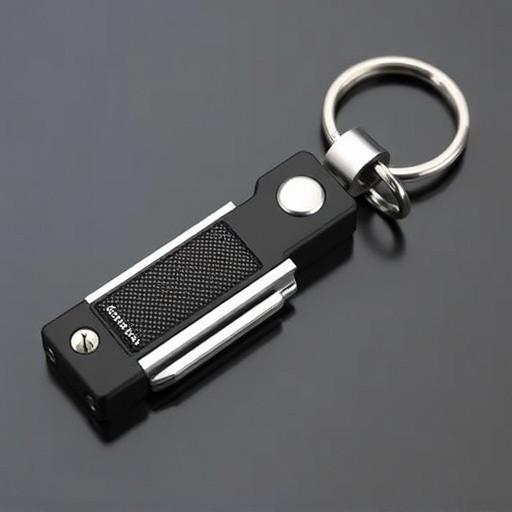Self-defense keychains, despite their popularity for portability, face varying legal landscapes across US states regarding open or concealed carry. Some allow metal spike keychains under specific conditions, while others restrict or prohibit them. Understanding these Self Defense Keychain Laws by State is crucial to maintain compliance and ensure personal safety, as effectiveness in real-world scenarios depends on user skill, distance, and situation. These tools should be considered supplementary for self-protection rather than a sole reliance.
“Uncover the power of self-defense at your fingertips with our in-depth guide to metal spike keychain tools. In today’s world, knowing how to protect yourself is essential, and these compact devices offer a unique solution. This article explores ‘Understanding Self-Defense Keychain Tools’ and delves into the effectiveness and legal considerations of metal spike keychains. We also provide a comprehensive ‘State-by-State Guide’ on self-defense keychain laws, ensuring you’re aware of your rights and prepared to defend yourself, no matter where you live.”
- Understanding Self-Defense Keychain Tools: A Comprehensive Overview
- Metal Spike Keychain Defense: Effectiveness and Legal Considerations
- State-by-State Guide: Self-Defense Keychain Laws You Need to Know
Understanding Self-Defense Keychain Tools: A Comprehensive Overview
Self-defense keychain tools, often in the form of metal spikes or knifes attached to keychains, are designed to provide individuals with a quick and accessible means of protecting themselves in various situations. These compact devices have gained popularity due to their ease of use and portability, allowing users to carry potential defense mechanisms wherever they go. Understanding the legality and functionality of these tools is essential for those considering them as a personal safety measure. The Self-Defense Keychain Laws by State vary significantly, with some states allowing open carrying while others restrict it to concealed carry only. Some states even have specific regulations regarding the type and size of self-defense devices permitted.
For instance, certain states may permit metal spike keychains as legal defense weapons under specific circumstances, while others might classify them as restricted or prohibited items. Users must be aware of their state’s laws to avoid legal repercussions. Moreover, beyond legal considerations, the effectiveness of these tools in real-world scenarios remains a topic of discussion. While they can cause harm and potentially deter an attacker, factors like user skill, distance, and the specific situation play significant roles in determining the outcome. Thus, it’s crucial to approach self-defense keychain tools as a supplementary measure rather than a sole dependency for personal safety.
Metal Spike Keychain Defense: Effectiveness and Legal Considerations
Metal spike keychains, marketed as self-defense tools, have gained popularity due to their compact size and perceived effectiveness. However, when considering their use for self-protection, it’s crucial to explore both their prowess and legal implications. These devices, with sharp metal spikes designed to deter attackers, offer a quick response in potentially dangerous situations. Their small size makes them easily portable, allowing users to carry potential defense mechanisms wherever they go.
Yet, the effectiveness of such keychains varies significantly. While some models boast robust construction and sharp edges, others may be less reliable. Moreover, legal considerations surrounding self-defense keychain laws differ by state. Some states explicitly permit their use for self-protection, while others have specific restrictions or require permits. Understanding local Self Defense Keychain Laws by State is essential to ensure compliance and maximize the tool’s potential as a deterrent without legal repercussions.
State-by-State Guide: Self-Defense Keychain Laws You Need to Know
When considering a metal spike self-defense keychain for personal safety, understanding the legal framework around such tools is paramount. The laws surrounding self-defense keychain devices vary significantly from state to state in the US, reflecting diverse perspectives on individual protection and public safety.
For instance, some states explicitly permit the open carrying of self-defense keychains without a license, while others require registration or even a concealed carry permit. Still, other jurisdictions might have specific restrictions on the type of weapon allowed, its size, or the materials used. It’s crucial to research and comply with your state’s specific Self Defense Keychain Laws by State to avoid legal repercussions.
In light of the varying Self-Defense Keychain Laws by State, it’s clear that understanding the legal considerations and effectiveness of these tools is paramount. While metal spike keychains offer a potential defense option, users must navigate a complex legal landscape. Staying informed about local regulations is crucial to ensuring compliance and personal safety. Remember, self-defense should always be a last resort, and seeking professional training in self-defense techniques is recommended alongside acquiring such tools.
